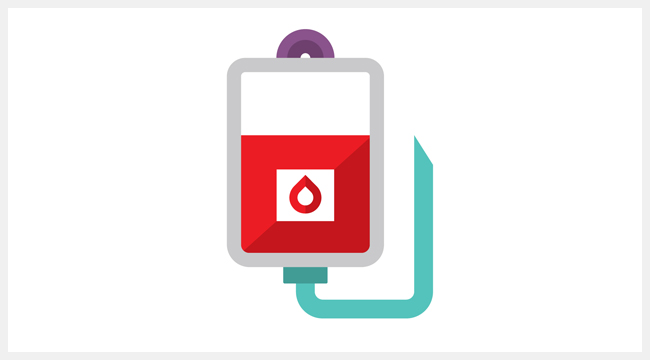Research evidence helps support submission to change donor screening

A significant step
In December 2021, Canadian Blood Services made a submission to Health Canada to focus donor screening criteria on higher-risk sexual behaviour, regardless of gender or sexuality, for all blood donors and all phlebotomy collection types. This is the latest and most significant step in a process that began over a decade ago, and that will continue to make participation in Canada’s Lifeline as minimally restrictive as possible, without compromising the safety of biological products or the adequacy of supply.
Building the case for change
Flashback to this month five years ago, and a gathering of experts in Toronto, Ont. In January 2017, at a meeting held by Canadian Blood Services and Héma-Québec, possibilities to evolve donor selection criteria were explored and workshopped. The consensus at that time was that the scientific evidence to support changes to donor deferrals in Canada was inadequate. This was particularly true of changes that would move donor screening from a population-based deferral (e.g., deferring sexually active men who have sex with men) to an individual risk behaviour-based deferral (e.g., deferring individuals who engage in higher risk behaviours).
New research was needed and following this meeting a research program was launched. The research program aimed to ensure the generation of adequate evidence-based research for alternative screening approaches for blood or plasma donors, which could evolve the current deferral policy for men who have sex with men (MSM) while maintaining the safety of the blood supply. This program funded projects in two rounds of competitions (2017 and 2018), and in 2020 a new research program to specifically explore alternative screening and collection approaches for source plasma donations was launched. Through these research programs, which are funded by Health Canada, Canadian Blood Services has been supporting 19 independent research projects to help inform more inclusive eligibility criteria for blood donation.
Supported by research evidence
December’s submission to Health Canada would not have been possible without the large body of evidence that has been generated over the past several years through these research programs. Due in large part to the dedicated work of the funded researchers across Canada, Canadian Blood Services had more evidence than ever before indicating its proposed eligibility change will not compromise the safety or adequacy of the blood supply. The evidence gathered through the research programs, as well as findings from the international research community, epidemiological data and Canadian Blood Services’ own extensive modelling support the proposed change and have informed the submission to Health Canada.
Health Canada’s review typically takes several months, and a decision is not expected until later in 2022. If approved, Canadian Blood Services would seek to implement the changes as quickly as possible. The research findings will also be drawn on at this time to inform staff readiness and ensure that the changes are put in place appropriately.
Learn more about the research
Information about the research programs, the projects they support and the evidence they are generating can be found on blood.ca. The research resources page for evolving eligibility for gay, bisexual and other men who have sex with men contains an overview of the research programs. There’s also a database of published research resources related to the programs and links to project summaries for those interested in learning more. Keep checking back on these pages — they will be updated as projects complete, and as papers and other resources are published.
Research-supported change already in place for plasma donors
Canadian Blood Services started the process of making a change to source plasma eligibility criteria for gay, bisexual and other men who have sex with men in 2019. Following approval from Health Canada in September 2021, these new eligibility criteria were implemented at our large volume source plasma donor centres in Calgary, Alta. and London, Ont. This submission and implementation of the program in Calgary and London was directly informed and guided by research supported by the research programs. Read Canadian Blood Services’ story “Expanding plasma donation to be more inclusive” to learn more about this change and how it was supported by research projects. These alternative criteria for plasma donation will remain in place until such time as new criteria for all phlebotomy types are implemented.
Canadian Blood Services – Driving world-class innovation
Through discovery, development and applied research, Canadian Blood Services drives world-class innovation in blood transfusion, cellular therapy and transplantation—bringing clarity and insight to an increasingly complex healthcare future. Our dedicated research team and extended network of partners engage in exploratory and applied research to create new knowledge, inform and enhance best practices, contribute to the development of new services and technologies, and build capacity through training and collaboration. Find out more about our research impact.
The opinions reflected in this post are those of the author and do not necessarily reflect the opinions of Canadian Blood Services nor do they reflect the views of Health Canada or any other funding agency.